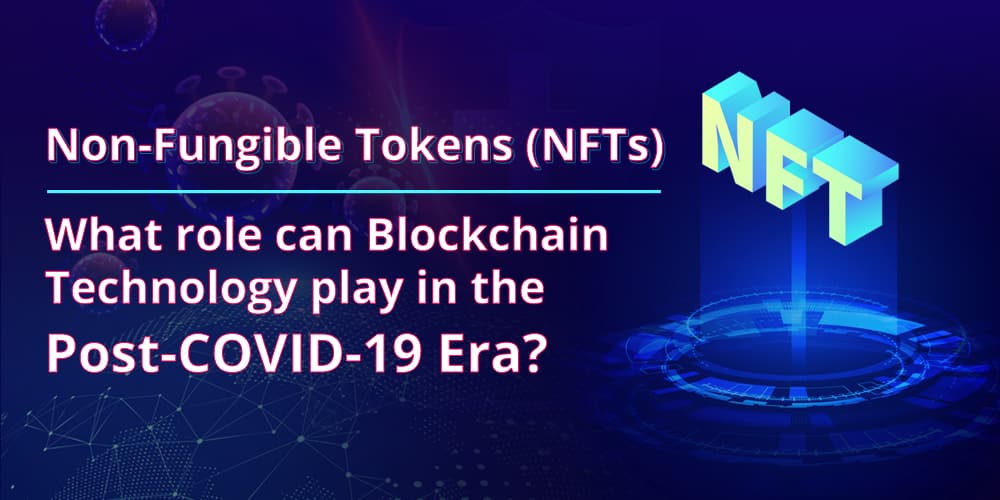
With the COVID-19 virus spreading all over the globe, businesses have remained closed to comply with government-initiated protocols. While businesses have been on the receiving end of the coronavirus scourge, more and more entities are adopting digital marketplaces to help market their products to home-based and digital-savvy buyers.
Amongst trade and finance-related institutions, there has been an increasing need among stakeholders to exchange important documents through trustless transactions. At the same time, as more and more clients rely on eCommerce,there has been an increasing need to guarantee transparency.
To avert unnecessary and expensive product returns, the need for trustless transactions has gone through the roof. Adopting decentralized and trustless transactions will enhance digital transactions’ transparency, security, and traceability.
Whilst challenges resulting from COVID-19 have been devastating, several tech-related questions linger. These are:
Non-fungible tokens or NFTs are unique tokens that contain identifying information recorded within their smart contracts and immutably recorded on the token’s blockchain. The information makes them irreplaceable by commodities that are similar. Since non-fungible tokens are immutable, their use plays an important role in proving ownership in today’s increasingly digital world..
At the same time,non-fungible tokens aren’t divisible.That is a part of the token would not be worth much or redeemable. What’s more, NFTs cannot be exchanged for identical tokens.
NFTs in Trade and Finance
Within the trade & finance space, non-fungible tokens can help track property rights, evidence of purchase, and product attributes involved in trade and finance. To facilitate the highly digitized and global trade, NFTs can serve as digital deeds or receipt and represent property rights. For instance, NFTs can be used to indicate ownership of a particular consignment and track the inventory of a particular buyer.
The keys to an NFT wallet proves that a specific merchant is the rightful owner of a consignment. Moreover, key stakeholders within the trade and finance can countercheck the authenticity of a product through a public database.
A major benefit associated with NFTs in Trade and Finance is eliminating the problem of counterfeit goods.
Post COVID-19, more and more businesses will go cashless. This will need the adoption of trustless transactions facilitated by blockchain-based NFTs.
Building upon recent adoption of NFTs by Nike, formula -1, and the ongoing discussion to use NFTs for voting within the Americas, NFTs will be part of the new normal after the coronavirus scourge.
More elaborately,through NFT tokens, real-world assets will be properly digitized and stored. Ultimately, this will revolutionize trade and finance transactions that relate to the compensation, legality, storage, and securing of property.
TradeFinex is a peer-to-peer decentralized platform that allows Trade Finance originators to distribute a variety of deals among banks and non-bank funders. Through a variety of tools, Tradefinex can leverage the power of smart contracts guaranteeing efficient and more transparent transactions within the trade and finance space.
Currently, the Tradefinex network offers a digitized and decentralized approach to manage invoices. Through its invoice factoring approach, traders can create NFT tokens for their invoices on XinFin’s blockchain network.
Through a simple process, Traders can add their invoices to the blockchain through QuickBooks or through a manual process. (Check out this guide on the simple process).Once deployed on the network, the invoices, which are now NFTs, can be sold to third parties or banks at a discount. This enables businesses to fund their cash flow with ease
Advancing the concept of going cashless, tradefinex allows the creation of digitized bonds. For full control and visibility, key stakeholders in trade and finance can create digital bonds and add them to smart contracts using the BOSS 101. (BOSS 101 refers to the Bond offering Smart Contract Standard). Adding bonds to smart contracts converts them to NFTs that can be deployed on any blockchain network. The XinFin network,however, offers the best performance.
Through digitized bonds, stakeholders in the trade and finance space reduce risks of errors, potential fraud, and cut costs of credit and administration.
Several attributes make the XinFin network a leading contender for blockchain-based and digitized transactions. These are:
Block time–the average time that a blockchain network takes to generate one more block –is important for digital transactions. Thus, shorter block times mean faster transactions within a blockchain network.
The XDC token has a block time of close to two seconds. In contrast,other Ethereum based networks have block times between 10 to 20 seconds. The shorter blocktime with the XDC network means faster transactions.
Given that thousands of transactions take place within the Trade and Finance space, fast transactions offered by the XDC network are essential in enhancing efficiency.
Transaction fees influence the viability of digital transactions. Thanks to the XDC network, Trade, and Finance stakeholders can part with 0.00042% as transaction fees.That’s compared to transactions on other ethereum networks(like the USDT network), whose transaction fees are roughly 0.62%.
So, XinFin network will be more cost-effective than ethereum based networks
The XDC network will also benefit digital transitions by offering shorter transaction times, as compared to other ethereum networks. Specifically, the transaction time on the Xinfin network is roughly two-to-three seconds, while transaction times on other ethereum networks are between five and seven minutes.
With shorter transaction times, transactions are faster on the XinFin’ Hybrid network.
At the same time, the XDC network’s capacity is not nearly full, hence, the network has the potential to offer exceptionally fast, and highly secure transactions.
Smart contracts allow various useful features like escrow, auto trigger for the payments and open law infrastructure of ADGM court provides more legal enforcement. Recent appointment of Ex SWIFT Trade Head Mr.Andre casterman indicates XinFin’s Seriousness towards digitization of Trade finance and cross border trade and payments settlement.
Reference :
Get the latest Crypto & Blockchain News in your inbox.